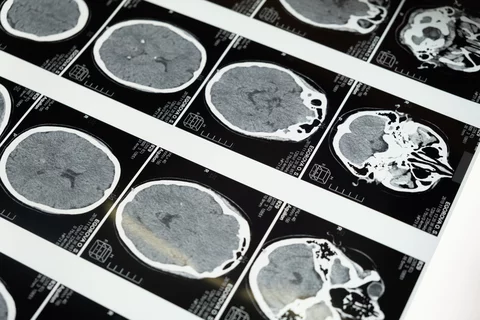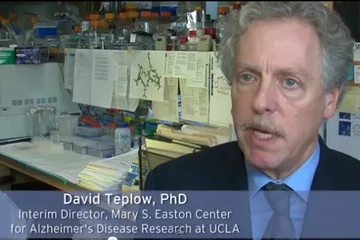UCLA researchers discover new point of attack for Alzheimer's drug therapy
Alzheimer’s disease is the most common cause of late-life dementia. The disorder is thought to be caused by a protein known as amyloid-beta, or Abeta, which clumps together in the brain, forming plaques that are thought to destroy neurons. This destruction starts early, too, and can presage clinical signs of the disease by up to 20 years.
For decades now, researchers have been trying, with limited success, to develop drugs that prevent this clumping. Such drugs require a “target” — a structure they can bind to, thereby preventing the toxic actions of Abeta. Now, a new study out of UCLA suggests that while researchers may have the right target in Abeta, they may be missing the bull’s-eye.




